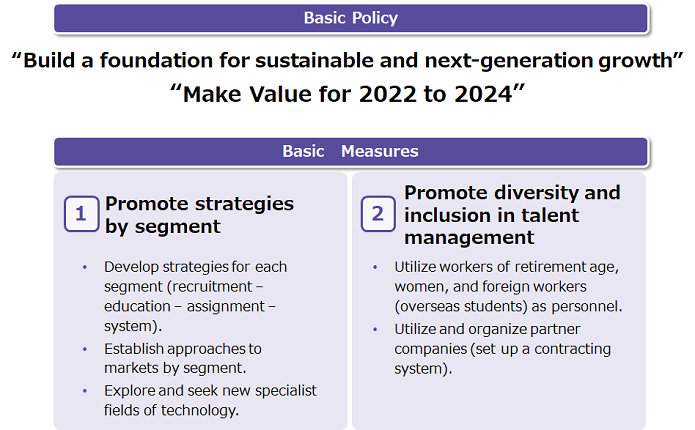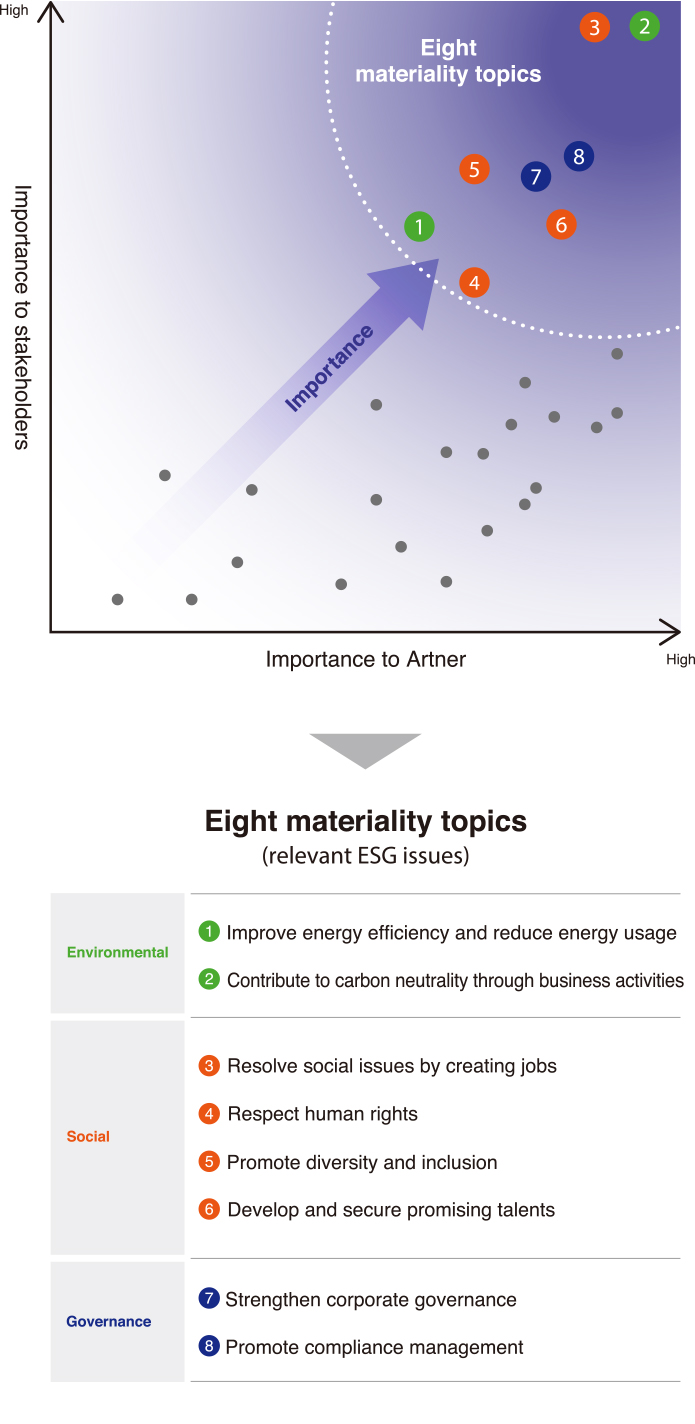Medium-Term Business Plan
Message marking the start of the Medium-Term Business Plan (fiscal year ending January 31, 2023 to fiscal year ending January 31, 2025)
My name is SEKIGUCHI Sozo, President and CEO of Artner Co., Ltd.
We would like to thank our shareholders and investors for their continued support.
We are pleased to announce that we have formulated a new Medium-Term Business Plan that covers the period of three years from the current fiscal year ending January 31, 2023 to the final fiscal year ending January 31, 2025.
In order to achieve sustainable and next-generation growth amidst a social environment that is changing on a global scale, Artner believes that corporate management should address social issues by carrying out initiatives, for example, based on the recommendations of the Task Force on Climate-Related Financial Disclosures (TCFD).
With carbon neutrality as the pillar of our business activities, we are committed to building a foundation for sustainable and next-generation growth by establishing internal systems for recruitment, training, and sales activities, contributing to resolving social issues through our business activities, increasing corporate value, and returning profits to our stakeholders.
As for the direction of our carbon neutrality efforts, we are doing our best to provide our engineers to development projects related to electric vehicles (EVs) and fuel cell vehicles (FCVs) that do not emit CO2 while being driven, infrastructure (charging infrastructure and hydrogen stations), autonomous driving, and semiconductors, etc., with the aim of advancing development and market penetration.
Our recruitment department will target students who have graduated from departments in the fields of electronics, material properties, energy, and information, as well as working professionals with skills and experience in similar fields.
In order to strengthen the recruitment of talents that match the demands, we will change our recruitment policy, which is currently overly focused on the recruitment of new graduates, into a policy that balances the number of new graduates and mid-career hires for talent acquisition.
The training department will increase the number of training staff to meet the ever-growing needs of engineers in the software and electronics fields, and to increase the number of training curricula centered on the theme of carbon neutrality.
The sales department will assign more engineers to carbon neutrality projects, resulting in an increase of the unit price of engineers by approximately 10% over other projects, which will then yield higher net sales and profit margins.
For the final year of this new Medium-Term Business Plan, we will aim to achieve the following performance targets: net sales of 11.6 billion yen and an operating margin of 14.0%.
The fiscal year ending January 31, 2023 marks the 60th anniversary of the Company’s establishment, and the new Medium-Term Business Plan starts on this milestone year. In addition, it is imperative that we achieve the listing maintenance criteria as we transition to the Prime Market of the Tokyo Stock Exchange. We are committed to creating a new Artner by taking on these enterprise challenges.
Since our share price is the result of our overall corporate strength, we will aim to achieve our share price target by increasing our strength one step at a time.
We at Artner are grateful for your continued understanding, support and cooperation.
Medium-Term Business Plan (fiscal year ending January 31, 2023 to fiscal year ending January 31, 2025)

Considering stakeholder interests and social issues, as well as their impact on our business management, Artner has identified eight materiality topics that should be prioritized. Based on our understanding of the importance of the materiality topics we have identified, we are committed to engaging in effective management practices and business activities to resolve these issues.

Identification Process of Materiality
We determined our materiality topics through the following process:
■Step 1: Identify the issues
We analyzed potential materiality topics based on various international standards, ESG-related external evaluations, and requirements from society including stakeholders. Thirty-one topics were identified.
■Step 2: Prioritize the issues
The identified issues were assessed by conducting internal and external stakeholder surveys in terms of their expectation and requirement levels for Artner, and then prioritized by two criteria: “importance to stakeholders” and “importance to Artner.”
■Step 3: Validate and determine the material issues
Selected and prioritized issues were reviewed in the Sustainability Committee for validation to finalize Artner’s materiality topics.
》 Summary of Non-consolidated Financial Results for the Fiscal Year Ended January 31, 2024 (Under Japanese GAAP) [PDF 584KB/9 pages]
》 Materiality (material issues)

